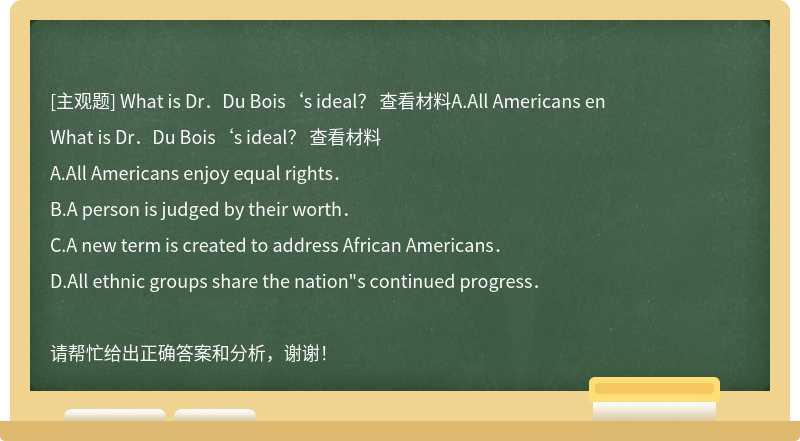Du Bois was a sociological and educational pioneer who challenged the established system o
f education that tended to restrict rather than to advance the progress of black Americans. He challenged what is called the “Tuskegee machine” of Booker T. Washington, the leading educational spokesperson of the blacks in the U. S. . As a sociologist and historian, Du Bois called for a more determined and activist leadership than Washington provided.
Unlike Washington, whose roots were in southern black agriculture, Du Bois’s career spanned both sides of the Mason-Dixon Line. He was a native of Massachusetts, received his undergraduate education from Fisk University in Nashville, did his graduate study at Harvard University, and directed the Atlanta University Studies of Black American Life in the South. Du Bois approached the problem of racial relations in the United States from two dimensions: as a scholarly researcher and as an activist for civil rights. Among his works was the famous empirical sociological study, The Philadelphia Negro: A Social Study, in which he examined that city’s black population and made recommendations for the school system. Du Bois’s Philadelphia study was the pioneer work on urban blacks in America.
Du Bois had a long and active career as a leader in the civil rights movement. He helped to organize the Niagara Movement in 1905, which led to the National Association for the Advancement of Colored People (NAACP), established in 1909. From 1910 until 1934, Du Bois edited The Crisis, the major journal of the NAACP. In terms of its educational policy, the NAACP position was that all American children and youth should have genuine equality of educational opportunity. This policy, which Du Bois helped to formulate, stressed the following themes: (1) public schooling should be free and compulsory for all American children; (2) secondary schooling should be provided for all youth; (3) higher education should not be monopolized by any special class or race.
As a leader in education, Du Bois challenged not only the tradition of racial segregation in the schools but also the accommodationist ideology of Booker T. Washington. The major difference between the two men was that Washington sought change that was evolutionary in nature and did not upset the social order, whereas Du Bois demanded immediate change. Du Bois believed in educated leadership for blacks, and he developed a concept referred to as the “talented tenth”, according to which 10 percent of the black population would receive a traditional college education in preparation for leadership.
The phrase “Tuskegee machine” (Line 3, Para. 1) most probably refers to
A.the established educational system.
B.a kind of tool.
C.the thoughts of Booker T. Washington.
D.the supporters of Booker T. Washington.
 题目内容
(请给出正确答案)
题目内容
(请给出正确答案)


 简答题官方参考答案
(由简答题聘请的专业题库老师提供的解答)
简答题官方参考答案
(由简答题聘请的专业题库老师提供的解答)






























